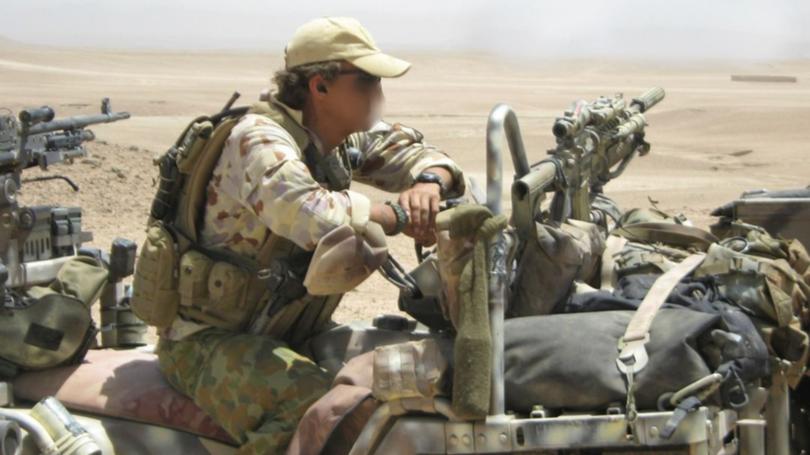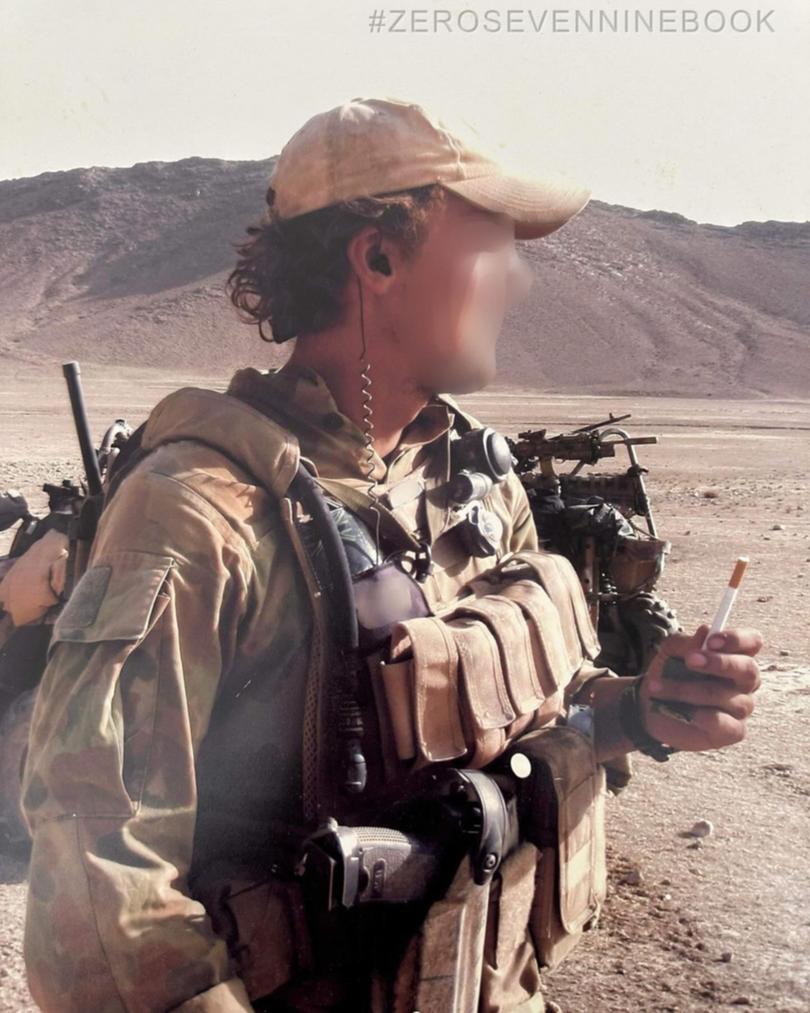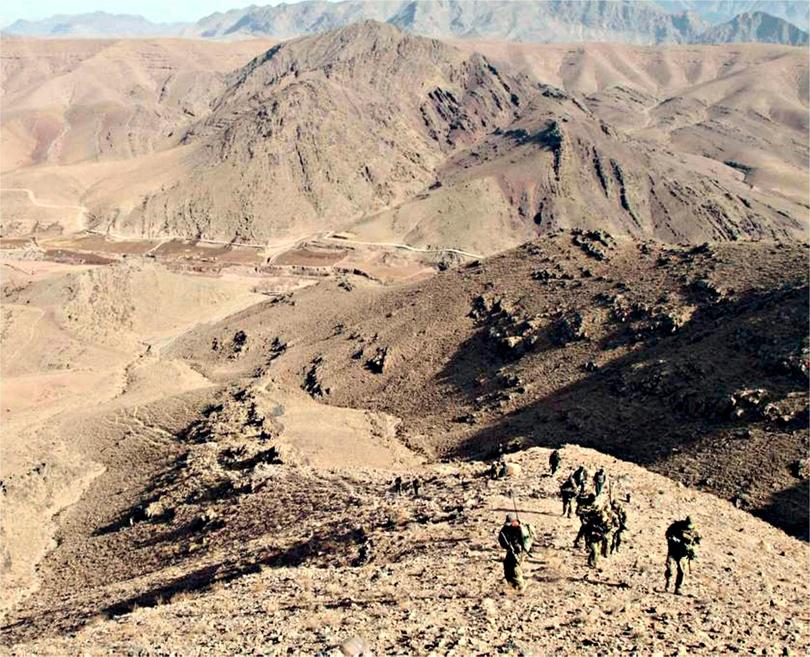AARON PATRICK: Afghanistan commando Scott Ryder says Australia’s military justice system nearly killed him
AARON PATRICK: Former army commando Scott Ryder survived a Black Hawk crash that killed three teammates. But he says the flawed system of military justice in Australia is what pushed him to the brink.

In Afghanistan, Private Scott Ryder was shot at, almost blown up and went down in a deadly helicopter crash. But it was the military justice system in Australia that almost killed him.
The former army commando reflected on his traumatic experience after a report from the Defence Department last week recommended enhanced protections for soldiers, sailors and airmen.
“An organisation I held with such deep regard had turned its back on me,” Ryder told The Nightly. “It’s what plunged me further into a deep depression.”
Sign up to The Nightly's newsletters.
Get the first look at the digital newspaper, curated daily stories and breaking headlines delivered to your inbox.
By continuing you agree to our Terms and Privacy Policy.Ryder is regarded by some special forces soldiers as an example of the callous treatment of military personnel, and why an independent authority needs the power to oversee the military justice system.
A sniper on active duty in Afghanistan in 2010 with the 2nd Commando Regiment, Ryder was charged with grievous bodily harm over an accident on a firing range at the Australian army base in Tarin Kowt.
Another soldier was injured when the grenade, which Ryder fired, clipped a discarded ammunition box and blew up. Both men had used the range without a supervisor present, which Ryder said was the regular practice at the base. The range had been treated like a tip, creating a safety hazard.
Two weeks later Ryder was in an American Black Hawk helicopter when it hit an embankment at night travelling faster than 200 km/h. Three other commandos and one American died.
Ryder broke two ribs, punctured a lung, broke his right leg in two places, shattered an ankle and had a cut so deep on a shin the bone was exposed. He likely survived because he was wearing a seatbelt and helmet.
After regaining consciousness at an American hospital in Germany, and then undergoing multiple surgeries at Westmead Private Hospital in Sydney, Ryder was court-martialed, the military equivalent of a criminal trial.
Fearing he might be jailed, Ryder began abusing painkillers and drank so heavily that he blacked out during all weekend drinking sessions. In the dock, he told a military judge: “I wanted to die.”
Hasty justice
Promoting a memoir about his army career, Forged in Fire, Ryder said the army should have delayed the court martial to allow him to recover physically and psychologically.
“I didn’t know if I was ever going to walk properly again,” he said. “My lawyer said it showed a weird lack of empathy. Why was there no objective person thinking we should wait six months?”
Soldiers who had combat and security roles are more than twice as likely to kill themselves than male Australian civilians, a royal commission into defence force suicides found two weeks ago.
The inquiry, which began in 2021, has increased awareness of the severe mental health challenges faced by soldiers and other members of the military. Between 1985 and 2021, 2007 serving and former defence personnel have killed themselves, according to the royal commission. The true figure is likely to be higher because some deaths, including solo car crashes, aren’t recorded as suicides when they may have been intentional.
“It’s a number that’s staggeringly high and it’s far too high, and we need to bring it right down,” Liberal defence spokesman Andrew Hastie said in a Perth radio interview Thursday.

The military justice system is part of the problem, the royal commission found, because it is unfairly applied and used as a weapon against individuals. It recommended the creation of a new body to help military personnel transition to civilian life and access support.
The Minister for Veterans’ Affairs and Defence Personnel, Matt Keogh, said the government agreed with the idea and hopes to have a plan ready by the end of the year.
One of the only bodies that can protect military personnel from their employer is the Defence Force Inspector General, who investigates deaths and reviews the use of formal discipline. The inspector general reports to the commander of the defence forces.
A formal review of the agency was accidentally published online last Wednesday. It recommended the Inspector General’s office be separated from the Defence forces because of a perception they are “umbilically linked”. One of the concerns raised in the report, which was written by formal Attorney-General Duncan Kerr, is that “rough justice” is meted out against military personnel.
Guilty, but no conviction
At his trial, the charge of causing grievous bodily harm was dropped. Ryder was found guilty of a discharging a weapon without authorisation, although no conviction was recorded, according to his book.
“The stress of the trial brought my deeply harboured survivor’s guilt to the surface and I sometimes broke down under the weight of it,” he wrote in Forged in Fire. “One night, at a barbecue with some friends, I got blind drunk. Mixing alcohol with my heavy medication was a bad idea and Sarah (his wife) found me inconsolable in the shower, claiming it should have been me who died, as the others didn’t hurt their mates on the range.”
A spokesman for the Commando Welfare Trust said: “Our veterans and serving members feel increasingly alienated and unappreciated. Fewer people are willing to enlist. If we continue down this path, both our national morale and defence capabilities will be at risk.”

Ryder, who now works as a corporate trainer and lives on the NSW Central Coast, said he supported full independence for the Inspector General, and it was possible the next person holding the job should come from outside the military.
The Royal Commission reached the same conclusion, arguing an outsider would enhance perceptions the organisation doesn’t take orders from the Defence Force hierarchy.
Current Inspector General James Gaynor was an army officer for 23 years and reached the rank of brigadier, one level below general.
“You can’t have someone involved in a chain of command conduct an audit on themselves,” Ryder said. “Why is that not recognised in Defence?”
The defence department referred a request for comment to the inspector general’s office, which declined to comment. The defence force’s top leaders have said: “We are committed to doing better.”
LIFELINE 13 11 14
BEYOND BLUE 1300 22 4636

